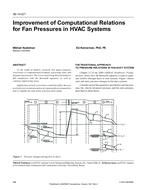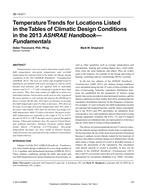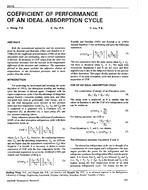A study was performed to gain an understanding of the feasibility of an earth coolant tube for use in cooling and heating air for residences. Based on a literature search, it was determined that two aspects of coolant tube operation had never been studied: (1) the effect of operating coolant tubes for long periods of time and (2) the importance of the coolant tube depth.
A numerical approach using a finite difference form of the general energy conduction equation was used to evaluate these effects. This study presents expected rates of energy transfer for coolant tubes as a function of soil properties, airflow rate through the coolant tube, and tube dimensions. A comparison is made between the available data and the model developed in this paper. For air mass flow rates less than 2500 1bm/h, the model gave results within 20% of experimental data. Data on earth coolant tube operation are limited, and there is a need for” data on the long-term, time-dependent operation of these tubes. Better comparison is expected when time-dependent experimental data are available.
Units: I-P
Citation: ASHRAE Transactions, 1987, vol. 93, pt. 1, New York, NY
Product Details
- Published:
- 1987
- Number of Pages:
- 15
- File Size:
- 1 file , 900 KB
- Product Code(s):
- D-NY-87-3053


